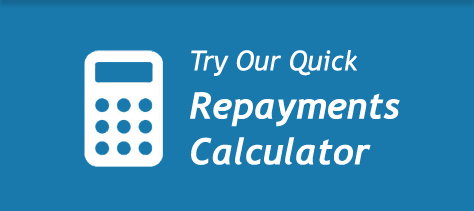
When it comes to getting started in property investment, it can be difficult to know how and when to invest money, what the risks involved are and a whole host of other things. To help you navigate the stormy seas of property investment, we’ve put together this beginner’s guide to get you started today.
Finance
Before you can make any investment in property, you need to know whether you can afford it or not. Take a careful look at your financial situation. Is your job stable? Are you good at managing your expenses? Do you have assets and savings to help obtain money from a financier? Do you have home equity that you can use?
Understanding whether you can afford to make a property investment is essential before doing anything else as without the finance, you won’t be able to make any investment.
Pre-approval
Trying to obtain a pre-approval is a good idea if you are unsure whether you are financially ready to invest in a property or don’t know how much you can borrow. Trying to apply for multiple pre-approvals isn’t a good idea though. Every time you apply, the lender will put an enquiry on your credit file. Multiple enquiries on your credit file will make lenders uneasy and may cause them to refuse your application.
Before you look at applying for a pre-approval there are three things you can do to increase your chances of being successful. Firstly, find out if your current circumstances allow you to qualify for a loan. Secondly look at your debt and see if there aren’t any areas where you can reduce it and thirdly check your Equifax Credit Report.
Goals
When undertaking any project, you must have goals to reach for. When it comes to investing in property, most people are looking to set themselves up with financial security for the future. But having details laid down of what your goals are can help you achieve them. Do you want to be able to be financially independent, living off the returns of your property investments in 15 years? Set up a plan for whatever your goal is over the time period you are aiming for and then break it down into yearly, bi-annual, quarterly, monthly and weekly steps to help you achieve your goal.
This way you can stay on track with your goals, track your progress and not become overwhelmed by the enormity of the project.
Your budget
Next comes the boring part – budgeting. Budgeting isn’t glamorous and it is often boring and frustrating, but doing your budget and sticking to it is the only way that you are going to be able to accurately gauge what you can save, when you can save it and be able to afford the big expenses that come with property investment further down the line.
Risks
Understanding the risks that are involved in property investment is the next thing to look at once you have done your budget. You should also understand what your attitude towards the risks involved are, as well as what risks you will be able to cope with.
The Plan to Purchase
Now you can move onto the purchase plan. You need to include your goals – the income or financial growth that you are aiming for and, much like a business plan, it should be structured so that you can keep referring back to it and it can help you keep moving forwards.
Your purchase plan should include:
- Your strategy for growth
- Criteria for success
- A property market research plan
- Criteria that properties must meet
- Appraisals
- Making sure you do your due diligence
- The offer and negotiating for the property
Overseas Investment
Property investment isn’t just limited to local investment, you can invest in property overseas, especially in areas where the dollar is strong against the local currency.
There are also things to consider such as the distance the property is from where you live and whether hiring a local agent to maintain it is necessary. What the local cost of renovations and repairs are and the insurance that you will need for the property. You should also check any hidden costs such as property taxes that are due as well as insurance and maintenance costs.
You should also keep an eye on exchange rates. If the rates start to shift against you, it may be worth considering selling an overseas property and making money on the sale and then using the money to reinvest in a different location.
What to buy
Knowing what to buy is as important as understanding the financial side of things. You will want to look at properties that will appeal to as many people as possible. Things that you will want to look at include a second bathroom, a lock up garage and the nearby infrastructure such as schools, transport and shops.
Look for properties that will also appeal to a wide range of potential renters, if you can find something that will appeal to single people, couples and young families you are more likely to rent it than if you focus on specific target audience.
Properties that are not going to require a lot of money in order to maintain are also something that should be further up your list than properties that will need constant and expensive maintenance. Properties with elaborate gardens that will need weekly upkeep or properties will pools will be much more expensive and difficult to maintain.
Remember: It’s an investment property
Finally, the property you are investing in isn’t a home or something to become attached to. It is an asset that is supposed to be helping you achieve your goals. Make sure that you don’t give up if you hit a small roadblock as it is a long-haul investment, but equally don’t be afraid to sell a property and invest in a different one if the one you have is costing you more than you can afford or more than you will be likely to make from it.
Credit One has specialist Property Finance Consultants who can assist you with your property finance needs no matter whether you're a first home buyer or a seasoned property investor. Speak to our specialists today on 1300 CREDIT (1300 273 348) or visit our website for further information.



